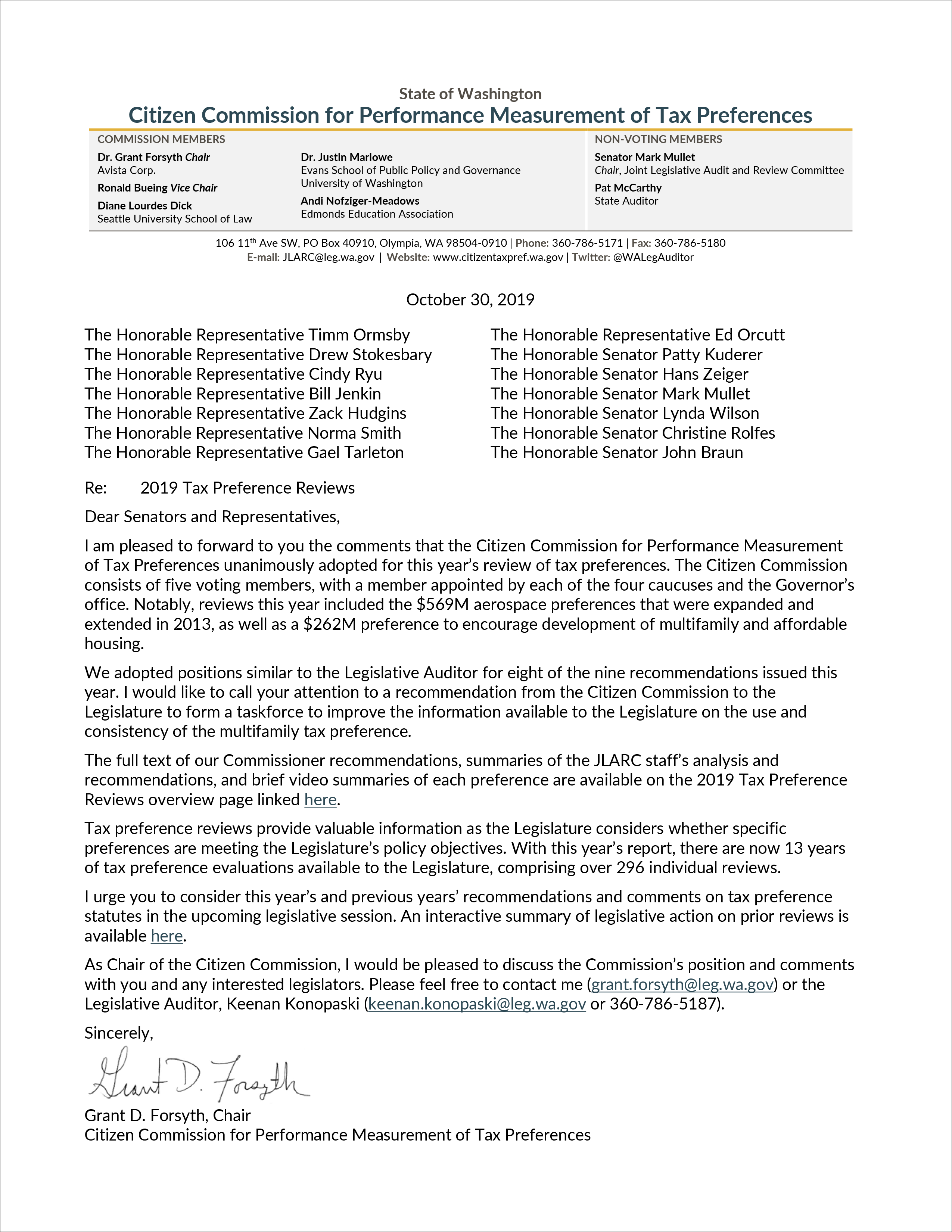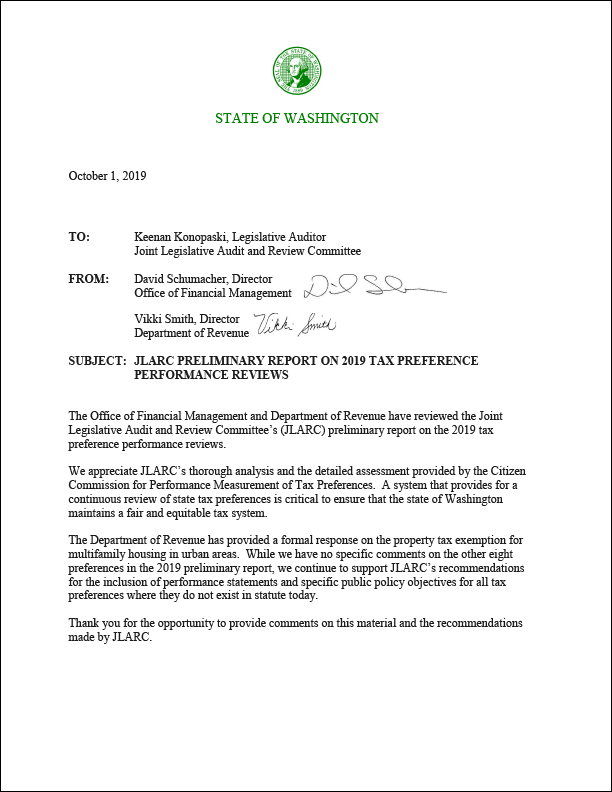2014 review concluded that the preference appeared to conflict with a public policy objective to reduce the cost of doing business in state
When the Legislature expanded aerospace preferences to in-state suppliers in 2008, it stated three broad public policy objectives:
- More comprehensively address the cost of doing business in Washington compared to other states.
- Encourage the continued presence of the aerospace industry for a broader group of suppliers.
- Provide well-paying jobs.
When reviewing this preference in 2014, JLARC staff also inferred a fourth objective – to clarify place of sale of certain airplane parts. The preference met this objective by defining place of sale. However, JLARC staff found that it appeared to conflict with the Legislature’s stated objective of reducing the cost of doing business in Washington as compared to other states. Specifically, the preference provided greater tax advantages to out-of-state airplane part manufacturers than to in-state manufacturers. A Washington commercial airplane manufacturer could still benefit indirectly to the extent that the out-of-state parts manufacturer chose to pass on its taxpayer savings to the buyer.

Source: JLARC Analysis of RCW 82.04.627 and WAC 458-20-193.
In 2014 review, Legislative Auditor recommended reviewing and clarifying the preference
The Legislative Auditor recommended that the Legislature review and clarify the preferential tax treatment provided to out-of-state manufacturers and consider adding reporting or other accountability requirements to provide better information on use of this preference.
Limited data is available to analyze use of the tax preference for 2019 review
There is no specific reporting line for the preference, and out-of-state beneficiaries may not need to register with the Department of Revenue. For these reasons, it is difficult to determine the exact number of beneficiaries that claim the preference or the actual amount of tax savings.
However, based on the available data, JLARC staff identified three businesses that claimed the preference in fiscal years 2016 and 2017. Based on this data, estimated beneficiary savings are $620,000 per biennium. JLARC staff found fewer than three beneficiaries that claimed the preference in fiscal year 2018. Actual figures may be higher.
Legislative Auditor's conclusions and recommendations from 2014 remain applicable
The Legislature has made no substantive changes to the preference since the 2014 review.
- One bill, enacted in 2015, updated Federal Aviation Regulation (FAR) citations and references in the statute governing the preference. The bill did not substantively change any of the provisions governing the preference.
- Three other bills were proposed, but did not pass. Each would have made broad changes to all tax preferences, but included no substantive provisions specific to this preference.
As a result, the preference continues to provide greater tax advantages to out-of-state airplane part manufacturers than to in-state manufacturers.
Recommendations
Legislative Auditor's Recommendation: Review and Clarify
The Legislature should review and clarify the preferential tax treatment provided to out-of-state manufacturers because it seems to run counter to the Legislature’s stated policy objective of reducing the cost of doing business for Washington compared to locations in other states.
In addition, the Legislature may want to consider adding reporting or other accountability requirements that would provide better information on out-of-state manufacturers’ use of this preference.
More information is available on the Recommendations Tab.
Commissioners' Recommendation
The Commission endorses the Legislative Auditor's recommendation with comment. The tax preference addresses what had previously been an area of significant dispute between taxpayers and the Department of Revenue on sourcing of sales where final inspection of the products for FAA purposes occurs outside of Washington. The Legislature should clarify this by continuing the preference and re-stating that its purpose is to define the place of sale as opposed to reducing Washington’s cost of business. Doing so will avoid further disputes and will not require further reporting for this structural clarification.





